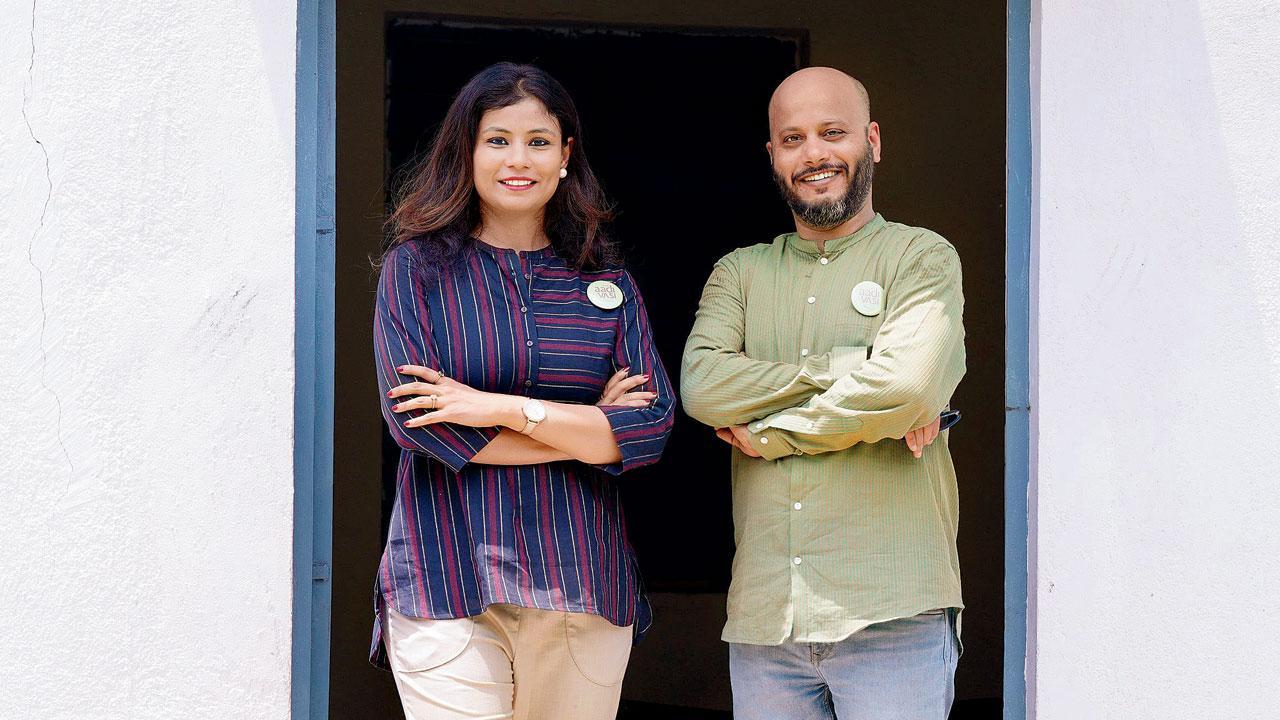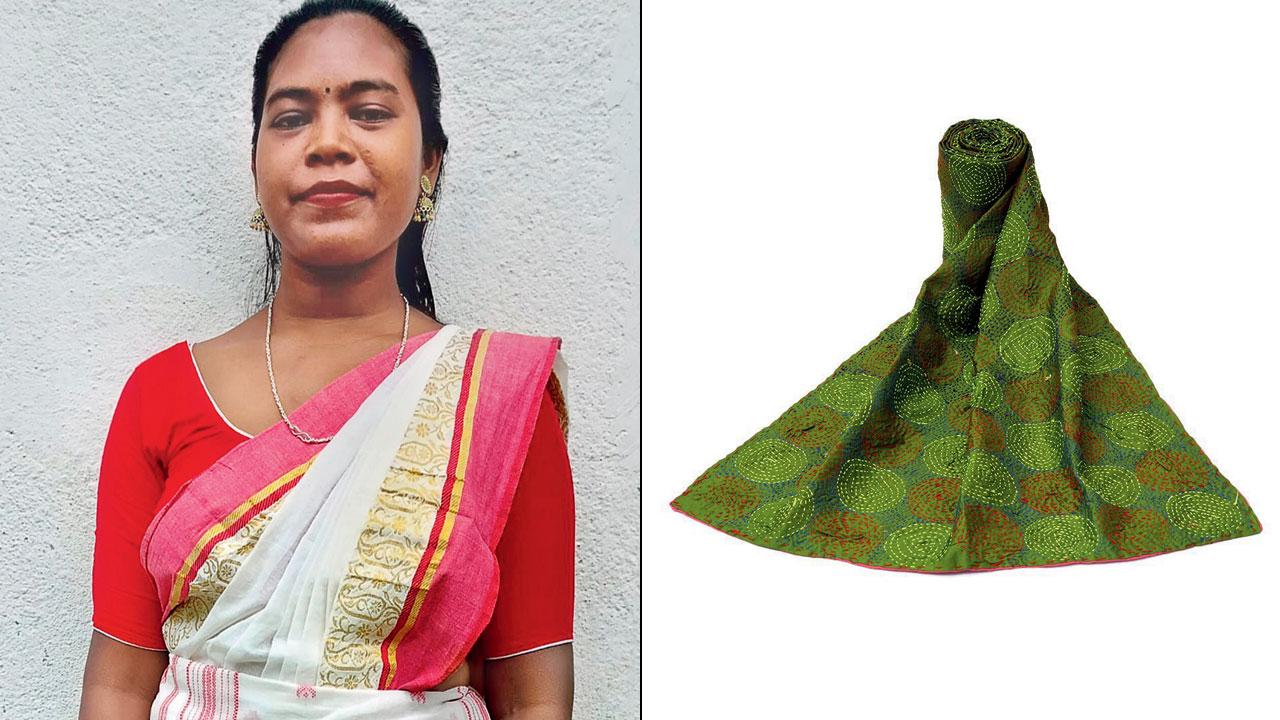Gifting your loved ones a present with purpose could mean making a meaningful changes in the lives of talented indigenous artistes

Bikrant Tiwary and Supriya Patil founded Aadivasi.org to provide sustainable livelihood for tribal communities
We’ve been eyeing the dokra musician figurines from Odisha, buransh earrings from Uttarakhand, and the kantha stitch stoles from West Bengal—all made by tribals from regions varying from Jharkhand to Tamil Nadu—for a while now. But what sealed the deal for us, was that the money paid to purchase these items, is given to a charity of our choice. You select an item to match the total amount you’d like to contribute to a cause, choose the cause at checkout, and receive an Impact Certificate along with your KarmaGift.
ADVERTISEMENT
Social entrepreneurs Bikrant Tiwary and Supriya Patil, who have worked extensively on tree plantation projects across rural India, realised that the success of a conservation project hinges on the active participation of tribal communities. They saw the need to provide sustainable income opportunities, not just seasonal employment, to help these communities preserve their cultural heritage and prevent migration which is a prevalent issue in these areas.

On the site, you can buy tribal goods like kantha stitch stoles from West Bengal and buransh earrings from Uttarakhand
And that’s when Aadivasi.org was born in April 2023. The site has been following the barter model with over 100 handicrafts items from Jharkhand, Assam, Odisha, West Bengal, Rajasthan, Tripura, Uttarakhand, Tamil Nadu and Chhattisgarh. “We are training and supporting over 15 self-help groups,” says Patil, “comprising 750 artisans. More than 72 children benefit from sponsored education and mid-day meal programmes. We are positively impacting over 7,000 rural communities through holistic conservation initiatives. For as little as R200, you can contribute towards planting trees, providing mid-day meals, paying school fees, or providing sanitary pads for these communities.”
Purnima Besra, 23, a domestic worker from Murga Guttu Village in Jharkhand, from the Santhal Tribe is a beneficiary of this programme, and has been getting free sanitary napkins as part of the barter. She says, “Sanitary pads are expensive and not easily accessible. Most often, we had to manage without them. Now, we no longer face uncomfortable situations and can continue without taking leave from work.” “Earlier,” shares Anita Nayak, 22 who assists her family at their farms “we had to rely on old rags (during periods), which was uncomfortable and unhygienic. With free sanitary pads, I can care for myself without burdening my family with extra costs.”

Proceeds from the site also go towards providing free sanitary pads for these communities, so women like and Purnima Besra no longer have to rely on rags
Another beneficiary of the mid-day meal programme is primary school student Sulochana Baske, of Murgaguttu Rural School in Saraikela district in Jharkhand. She finally likes coming to school every day because the programme serves delicious food. Reflecting on the broader impact, Tiwary says, “We are deeply passionate about witnessing the tangible difference we make— planting a tree, nourishing a child, or empowering a woman. It reinforces our commitment to this mission, and it’s gratifying to see our work actively improve lives and bring sustainable change.”
Also Read: Breaking sound barriers in Bastar: This Mumbai-based band is bringing folk music to the fore
 Subscribe today by clicking the link and stay updated with the latest news!" Click here!
Subscribe today by clicking the link and stay updated with the latest news!" Click here!












